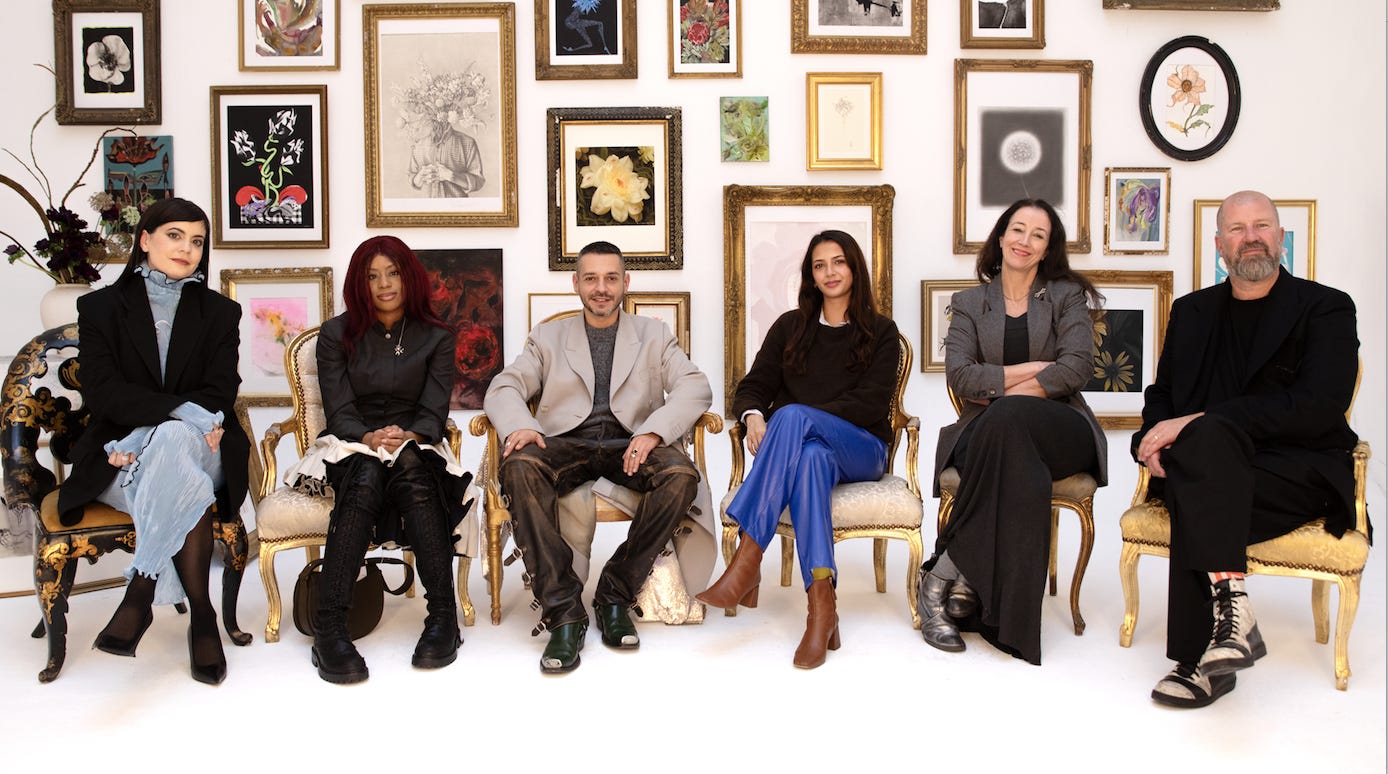This London Fashion Week is significant as we celebrate its 40th Anniversary. Originally started by Lynne Franks, who was the inspiration behind Eddie’s character on Ab Fab, fashion week and the legends who have shaped it and who have built it, have placed Britain on the map as one of the global leaders in talent. As our CEO Tamara Cincik says, “Fashion shapes culture, and culture is power. Nothing soft about it.”
What follows is a visual diary of fashion week from the front row by Tamara, our Fashion Director Karen Binns and our Global Sustainability Expert Clare Press through her recent book launch.
We kicked Fashion Week off by celebrating Clare Press’s new book, ‘Wear Next: Fashioning the Future.’ Published by Thames and Hudson AU.
We hosted the UK launch at the Conduit with curated readings by Bel Jacobs, Christopher Raeburn, Cat Heraty, Eshita Kabra-Davies and an in conversation piece between Clare and Caryn Franklin.
This is a book that completely reimagines the fashion sector, but far from pointing the finger, it provides an inspirational blueprint for the possibilities of our wonderful sector! This is a book that should be on every bookcase and in every school. Truely groundbreaking! 👏👏👏
Tamara and Karen discuss Preen by Thornton Bregazzi post their show with a backdrop of the River Thames. Karen points out that Preen are a brand who really understands their DNA and this season they brought an upgrade and update to this identity. They embraced the British culture a little bit deeper, with Charles Dickens bustles and their patterns were (as always) 200% on-point. Our team loved the fact that they are back showing in London post-Covid.
Next up was JW Anderson (a firm favourite with the team). This season Anderson brought us supersized silhouettes and Karen loved the oversized aesthetic and knits, calling it ‘modern-art walking’! We loved the play on the tropes and types that usually go unnoticed - a tension between the subtle and the loud, newness and subtlety, the grotesque everydayness-distortions-proportions – from grey wigs, to housewife flats, rosettes, knots and dowdy fits.
Welsh designer Paolo Carzana took us to a poetic and ethereal place in his collection entitled “Melanchronic Mountain.” Carzana famously works with plant based, recycled, organic and repurposed materials, natural dyes and handmade construction. His use of natural dyes and palette of daffodil and tea-stained rose were refreshing and explored a tension between strength and fragility. Karen called this collection – “Sublime! Excellent, shape, structure and new technique!”
Finally, Karen felt that Burberry’s Creative Director Daniel Lee ‘shut it down’ this season. Karen said:
“Came back to London …strictly British and Proud … and cool as you like!! Yup ... Daniel Lee shut it down this season … should fly off the shelves .. I’ll take the bomber !”
Karen’s sense of London Fashion Week:
“This season London Fashion Week has lifted the bar and focused on talent – not just popularity. British … is the word – you have to come here in person to feel the vibe and energy, regardless of the constant battles these designers face with the crippling effect of Brexit.
“They are coming out stronger and more resilient then ever in patterns, ideas and execution… No, we’re not taking lashes, we are fighting for our space in the global market!! Let’s Go!!”
To bookend the week, Tamara was on a panel with Stavros Karelis, Maliha Shoaib, Martyn Roberts, chaired by Giorgia Cantarini for SHOWstudio discussing Dilara Findikoglu’s A/W 24 womenswear collection.
Delivering a sector vision for the fashion industry
To finish Fashion Week with a bang, as Secretariat of the Ethics and Sustainability in Fashion APPG we will be delivering our sector vision for the fashion sector in Parliament this Thursday 22nd February at 10:30am. This is by invitation only, but please do contact admin@fashionroundtable.co.uk for more information.
Recommendations
Fashion Roundtable has identified the following recommendations, which are proposed to be looked at in greater detail:
Restriction-free movement for UK talent who wish to work in Europe and a reduction in red tape for the transportation of goods between the UK and EU.
The UK committing to Extended Producer Responsibility (EPR) to support the transition of the industry’s annual carbon footprint of 3.3 billion tonnes CO2e to Net Zero by 2050.
The reinstating of the VAT Retail Export Scheme with an estimated economy boost of £10bn a year according to current data.
Regenerating high streets to support UK businesses and protect local communities.
Greater support for on-shoring, a commitment to British made and a strengthening of public procurement.
Investment in UK manufacturing through consistent and secure orders.
Support for the UK as a place of decent work for garment workers.
Ratify the UNESCO Convention of Intangible Cultural Heritage.
Return to STEAM education.
Initiatives for UK workers from working-class backgrounds to access training and employment in the creative industries.
Support for more inclusivity in the fashion sector.
Rejoining of the Erasmus + Programme.
Artificial Intelligence (AI) and support of creative intellectual property (IP).
Food and fibre sovereignty.
Creative Wellbeing – Support for access to meaningful and rewarding work through a revaluing of craft, creativity, community, intersectionality and inclusivity.







